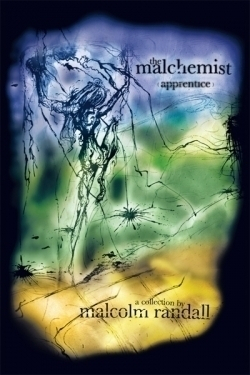The Malchemist Apprentice
Living on the margins of life can be isolating, but it can also give birth to great freedom. Malcolm Randall understands this. The poems and short essays included in The Malchemist Apprentice chronicle Randall’s childhood and adult experiences. Separated into four sections named after the seasons, the author explores how to strive toward being true to oneself no matter the circumstances.
There are beautiful moments in Randall’s work. Like someone able to taste a chef’s dish, the reader will no doubt identify the pulse of each poem and essay. In the piece “Sweet Carmen,” Randall writes about meeting a friend of a friend who has been diagnosed with terminal lupus. The moment where the speaker runs his fingers through Carmen’s hair before giving her a haircut sums up the power of friendship, healing, and affection. Randall doesn’t focus on the end of life but rather celebrates the beauty before the breakdown.
The poems take on new life because they follow rich essays about key moments from the poet’s life: watching sparrows with his mother, working as a housekeeper, and eye-opening experiences with an important teacher. However, without the lead-in prose, the poems would not hold the same weight because they include less precise language. Still, this poetry is packed full of powerful ideas. Randall writes in “Bathroom Wall #2 (The Mushroom)”: “In LIFE / The only / True DEATH / Is / Forgetting / To LIVE.” Though capitalizing key words isn’t necessary, the piece hits the collection’s main idea home. One could imagine these words scrawled on a bathroom wall in a local bar. Randall’s poems ask the reader to live an honest life and break away from the norm.
The author knows how to introduce poignant and beautiful moments. Though difficult things have happened in his past—feeling ostracized and different, being called a devil-worshipper—Randall holds no animosity. Instead, as he writes in “Liberty County,” he sees such hiccups and spirals as “beautiful lessons.”
Malcolm Randall is a malchemist: one “who practices the art of transmuting evil into love.” These poems and short essays show the reader that this isn’t a cookie-cutter world: people are different and individualism is a gift, not a curse. Like his mother’s lessons, Randall’s writing teaches readers that “like a bird,” we “can fly.”
Reviewed by
Lisa Bower
Disclosure: This article is not an endorsement, but a review. The publisher of this book provided free copies of the book and paid a small fee to have their book reviewed by a professional reviewer. Foreword Reviews and Clarion Reviews make no guarantee that the publisher will receive a positive review. Foreword Magazine, Inc. is disclosing this in accordance with the Federal Trade Commission’s 16 CFR, Part 255.

